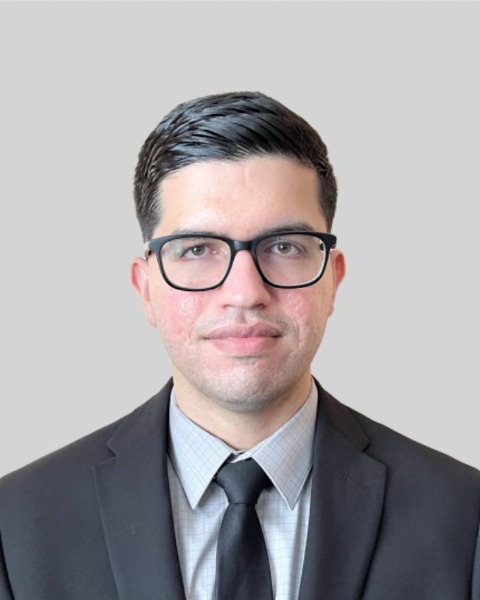Back
Introduction: In the absence of sleep disorders, sleep-related factors (sleep duration, snoring, etc.) might disrupt the sleep cycle and be associated with nocturia. The purpose of this study was to evaluate the association between sleep-related factors and nocturia.
Methods: The National Health and Nutrition Examination Survey (NHANES) database from 2005/06 to 2017/18 was analyzed for respondents who completed questionnaires pertaining to nocturia and sleep. Respondents with conditions impacting nocturia (sleep disorders, chronic kidney disease, etc.) were excluded. After weighing, the prevalence of nocturia for responses to sleep-related factors (hours of sleep, work schedule, snoring, snorting or stopping breathing, and sleepiness) was analyzed using chi-squared analysis and the association of sleep-related factors to nocturia, accounting for age, gender, race, and BMI, was determined using univariate and multivariate regression.
Results: 23,895 respondents (11,672 males and 12,223 females; mean age, SD= 45.2, 20.1 years) were included. Significant differences were noted for the prevalence of nocturia for responses to most sleep-related factors except work schedules (Figure 1). On univariate analysis, nocturia was associated with age (OR=1.035, p<0.001), BMI (OR=1.038, p<0.001), sleeping <6 hours (OR=1.603, p<0.001) or >8 hours (OR=1.673, p<0.001), snoring =5 nights per week (OR=1.192, p=0.004), snorting or stopping breathing 3-4 nights (OR=1.425, p<0.001) to =5 nights per week (OR=1.528, p<0.001), and feeling sleepy 5-15 times (OR=1.579, p<0.001) to 16-30 times per month (OR=1.970, p<0.001). Work schedule differences showed no significant odds of nocturia. On multivariate analysis, age (OR=1.035, p<0.001), BMI (OR=1.032, p<0.001), and sleepiness (OR=1.169, p<0.001) were associated with nocturia.
Conclusions: While most sleep-related factors were associated with nocturia in the absence of sleep disorders, only sleepiness showed an association on multivariate analysis in this relatively young population. The relationship between sleepiness and nocturia may be mediated by a variety of intrinsic issues related to sleep quality; therefore, further research utilizing sleep studies in patients with nocturia is needed. SOURCE OF
Funding: None

Podium Session
Session: PD33: Urodynamics/Lower Urinary Tract Dysfunction/Female Pelvic Medicine: Non-neurogenic Voiding Dysfunction II
PD33-12: Relationship of Sleep-related Factors to Nocturia in the Absence of Sleep Disorders
Sunday, April 30, 2023
2:50 PM – 3:00 PM CST
Location: S501C

Lakshay Khosla, BA
SUNY Downstate Health Sciences University
Podium Presenter(s)
Introduction: In the absence of sleep disorders, sleep-related factors (sleep duration, snoring, etc.) might disrupt the sleep cycle and be associated with nocturia. The purpose of this study was to evaluate the association between sleep-related factors and nocturia.
Methods: The National Health and Nutrition Examination Survey (NHANES) database from 2005/06 to 2017/18 was analyzed for respondents who completed questionnaires pertaining to nocturia and sleep. Respondents with conditions impacting nocturia (sleep disorders, chronic kidney disease, etc.) were excluded. After weighing, the prevalence of nocturia for responses to sleep-related factors (hours of sleep, work schedule, snoring, snorting or stopping breathing, and sleepiness) was analyzed using chi-squared analysis and the association of sleep-related factors to nocturia, accounting for age, gender, race, and BMI, was determined using univariate and multivariate regression.
Results: 23,895 respondents (11,672 males and 12,223 females; mean age, SD= 45.2, 20.1 years) were included. Significant differences were noted for the prevalence of nocturia for responses to most sleep-related factors except work schedules (Figure 1). On univariate analysis, nocturia was associated with age (OR=1.035, p<0.001), BMI (OR=1.038, p<0.001), sleeping <6 hours (OR=1.603, p<0.001) or >8 hours (OR=1.673, p<0.001), snoring =5 nights per week (OR=1.192, p=0.004), snorting or stopping breathing 3-4 nights (OR=1.425, p<0.001) to =5 nights per week (OR=1.528, p<0.001), and feeling sleepy 5-15 times (OR=1.579, p<0.001) to 16-30 times per month (OR=1.970, p<0.001). Work schedule differences showed no significant odds of nocturia. On multivariate analysis, age (OR=1.035, p<0.001), BMI (OR=1.032, p<0.001), and sleepiness (OR=1.169, p<0.001) were associated with nocturia.
Conclusions: While most sleep-related factors were associated with nocturia in the absence of sleep disorders, only sleepiness showed an association on multivariate analysis in this relatively young population. The relationship between sleepiness and nocturia may be mediated by a variety of intrinsic issues related to sleep quality; therefore, further research utilizing sleep studies in patients with nocturia is needed. SOURCE OF
Funding: None

